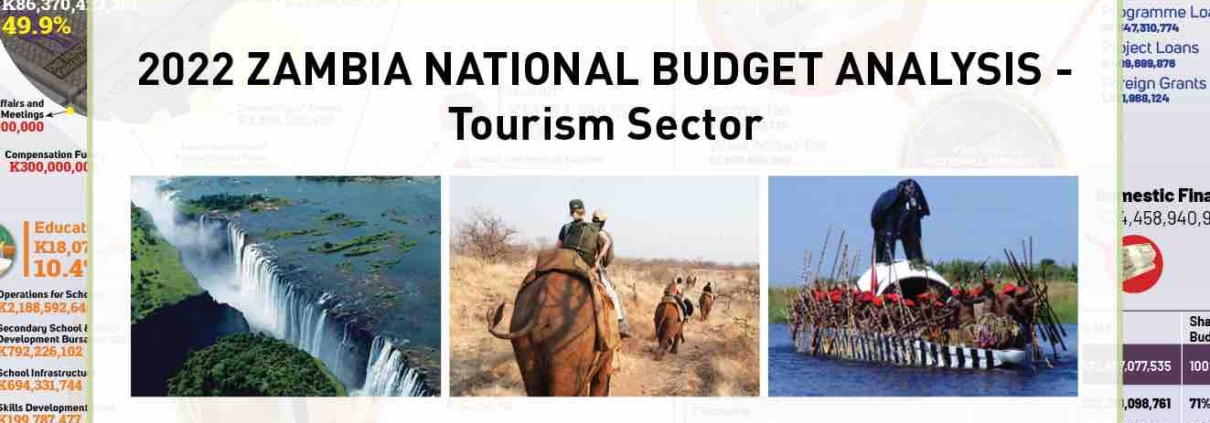Zambia’s tourism sector boasts of a wealth of natural assets such as waterfalls, lakes, rivers and diverse wildlife species. The sector is an important contributor to the country’s economic development through; job creation, foreign exchange earnings, contributions to Gross Domestic Product (GDP) and other economic facets.
Some of the challenges that have continued to impact the sector include the lack of a comprehensive national tourism plan and Zambia being perceived as a high-cost destination and recently the negative impacts of the COVID-19 pandemic. The 2022 budget has placed a strong focus on this sector as necessary to aid with the revamping the economy and creating employment opportunities, especially for the youth.
Growth in this sector slowed down in the second quarter of 2021 to 3.4% from 4.8% recorded in the first quarter of 2021. Government has thus extended current relief measures (15% Corporate Income Tax Rate) from December 2021 up to December of 2022. Furthermore, there has been an abatement on all VISA fees by 50%. These measures, despite costing the treasury money in the short term, are aimed at boosting the sector in the medium to long term. This is a positive step that will ensure Zambia is a more attractive destination for international tourists.
Other measures that Government will take include:
- Extending the waiver of customs duty on safari game viewing vehicles, tourist buses and coaches to 31st December, 2023 for selected tourism enterprises.
- Maintaining a stable economic landscape to reduce the cost of doing business, including streamlining license acquisition, easing tax compliance, visa processing and exemptions ,and improving connectivity.
- Putting in place a robust tourism marketing to incorporate all tourism products including traditional ceremonies, visual arts, culture, heritage sites and others.
- Promoting tourism diversification to other places and products in the country.
These measures are commendable and are likely to promote a lengthier duration of stay for international tourists which has seen a reduction from an average of 6 days in 2013 to approximately 4.7 days in 2018. Government also needs to demonstrate political will to put in place a single licensing system which, despite being mentioned in successive budgets but yet to be implemented.
Lastly, packages that promote domestic tourism could also prove an important source of revenue for the sector, especially in the midst of the COVID-19 pandemic.




